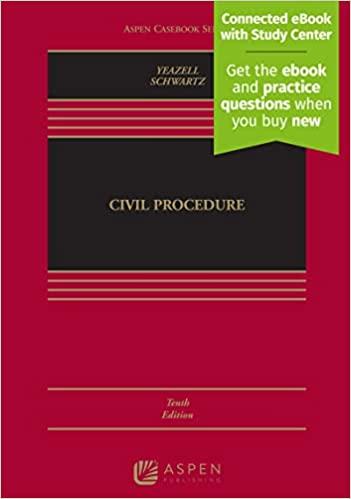Question
draft report preamble a) examine the historical events of the 20thcentury, leading to the creation of the European Union b) evaluate the original objectives of
draft report
preamble
- a)examine the historical events of the 20thcentury, leading to the creation of the European Union
- b)evaluate the original objectives of the EU
- c)compare and contrast the original objectives of the EU with its current
- position
first section
- a)provide an evaluation of the functions and powers of each EU Institution covering how the power of Utopia's national government might be reduced, if it joins the European Union AC 2.1
- b)examine the extent of the jurisdiction of the European Court of Justice
- c)explain the voting system of the European Council AC 2.3
- d)analyse the balance of power between the EU and national
- governments like Utopia.
The European Parliament - formation, EMPs, maximum size of 751 members, national quotas for each European country, legislative powers, budgetary powers, supervisory powers, elective powers - scope and limitations; The Council of Ministers - composition, internal structure, decision and voting processes; function and powers; The Commission - composition, election, the role of the President, function and powers; the role and function of specific Committees.
The Courts of Justice of the European Union - judicial composition, the European court system, jurisdiction and judicial process; the role of Advocate-General and the judges. Voting systems of the Council - simple majority (rare), qualified majority (the norm), unanimous decision (for measures of constitutional significance).
Second section
Third section
- a)doctrine of supremacy and officials have asked you to evaluate it. AC3.1.
- b)Theyalsowishtoknowthesimilaritiesanddifferencesbetweentreaties, regulations and directives and whether upon joining, Utopia will be bound by such legislation, particularly if there is a conflict between EU and Utopia's national legislation. AC 3.2
- c)assess direct and indirect effect AC 3.3
- d)Compareandcontrastinfringementproceedingsactionedbythe
- Commission with proceedings actioned by a Member State against another Member State. AC 3M1
- a)An explanation of the meaning of freedom of goods and services AC 4.1
- b)An evaluation of the prohibition of fiscal and regulatory barriers to free
- movement of goods and services AC 4.2
- c)An analysis of justifiable derogations from the principle of free movement of
- goods
- d)Evaluate the remedies for infringements of EU Law on the free movement of
- goods and services. AC 4M1
Dassonville formula. Cassis de Dijon.
Final section
At present, Utopia requires any Utopian national to obtain a travel permit, if they wish to travel abroad. Foreign nationals who wish to travel to Utopia can only be granted a three months tourist visa, which is non-renewable and for which they need to pay the equivalent of 150 in local currency. Utopia does not grant a right to work to any foreign national.
In order to encourage population growth, Utopia recently decided to offer the equivalent of 50,000 to any married couple who have at least three children. Utopia does not want to extend this benefit to couples that are not Utopian nationals.
In the final section of your report you need to provide guidance to the officials in Utopia, on the free movement of persons and the freedom of establishment. In this guidance you must:
- a)Explain the terms 'worker' and 'establishment' in relation to EU Law on free movement of persons
- b)Examine the rights of workers under EU Law of free movement
- c)Analyse the exemptions to the EU Law on free movement
- d)Appraise the impact of vertical and horizontal effects on individual rights
- to free movement
- e)Distinguish between social assistance and social advantage in relation
- to the free movement of persons
- f)Evaluate the role of EU citizenship in regulating rights of third parties.
Lawrie - Blum case 66/85
others - Levin case 53/81
Case 196/87 Steymann, C-456/02 - Trojani,
Case 344/87 Bettray
Case 292/89 Antonissen,
Case C- 138/02 Collins.
The meaning of establishment - e.g., Case C-55/94 Gebhard; issue of self- employment, mutual recognition of qualifications, establishment of companies (art 54). Rights of workers - equal treatment, prohibition of direct and indirect discrimination - scope, case law interpretation; issues of rights to social advantages v social assistance or social welfare - meaning, EU v internal issues.
EU citizenship - origin (art 20), constitutional significance, rights granted by the EU citizenship concept - collective enumeration of rights (art 20), right to move and reside freely within any EU member state (art 21), right to participate in municipal and EP elections (Art 22), rights to diplomatic protection (art 23), right to participate in the democratic life of the Union (Art 9-11), right to complain (Art 24); to whom in applies - Case C-650/13 Delvigne direct v indirect rights; impact of EU citizenship on statelessness.
The relationship between national, EU and Public International Law; specific issues regarding students and EU citizenship, rights of those not in employment; those with dual nationality and issues of third parties' nationals and right to family unification; the Citizens Rights Directive.
Step by Step Solution
There are 3 Steps involved in it
Step: 1

Get Instant Access to Expert-Tailored Solutions
See step-by-step solutions with expert insights and AI powered tools for academic success
Step: 2

Step: 3

Ace Your Homework with AI
Get the answers you need in no time with our AI-driven, step-by-step assistance
Get Started


